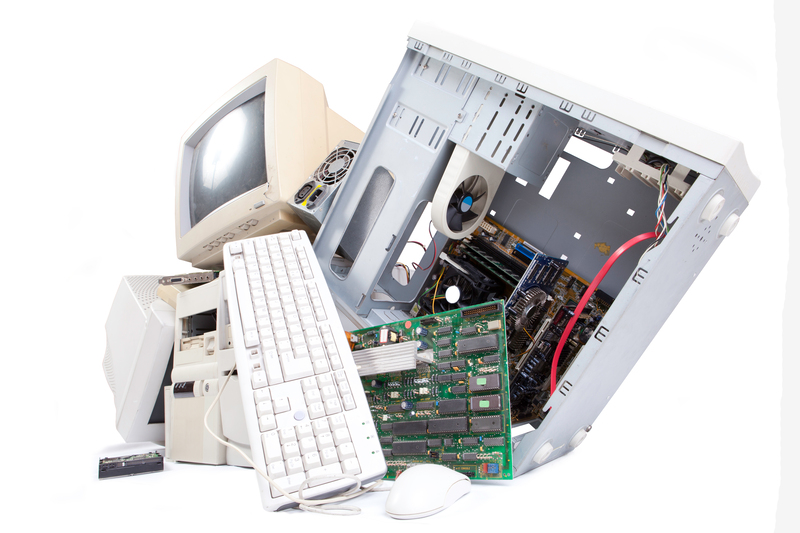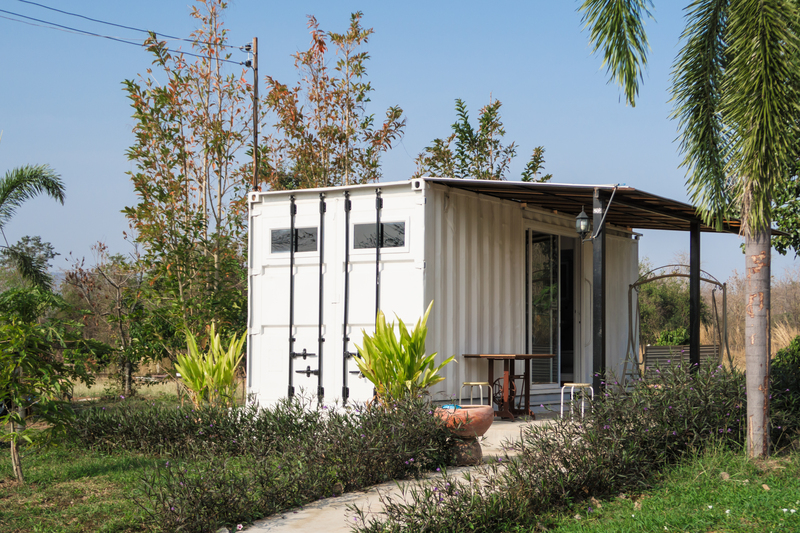Practical Waste Prevention Tips for Every Household
Managing household waste is essential for environmental sustainability, cost savings, and healthier living. Practical waste prevention tips for every household can help families minimize the amount of rubbish they generate, reducing their carbon footprint and fostering eco-friendly habits. This comprehensive guide offers actionable advice and effective strategies to prevent household waste, making your home cleaner and more efficient.

Why Waste Prevention Matters
The amount of waste generated by households continues to grow, straining landfill capacities and polluting ecosystems. By reducing the waste you produce, you conserve natural resources, lower greenhouse gas emissions, save money, and set a positive example for your community. Preventing waste at the source is more effective than recycling or disposal, as it minimizes the need for raw material extraction and reduces the energy used in manufacturing.
Assessing Your Household Waste
Before you can reduce waste, it's essential to understand what you're throwing away. Take a week to track your household's waste:
- Sort your trash into categories: food, plastic, paper, glass, textiles, and hazardous materials.
- Record the quantity and types of items you dispose of most frequently.
- Identify the sources: packaging, food prep, cleaning, personal care, etc.
This waste audit will give you valuable insights into opportunities for waste reduction in your home.
Effective Household Waste Prevention Strategies
1. Rethink Your Shopping Habits
- Choose products with minimal packaging: Opt for goods with recyclable or compostable packaging or buy in bulk to reduce individual wrappers.
- Carry your own reusable shopping bags and containers for produce, meat, and deli items.
- Purchase durable, high-quality items rather than disposable alternatives.
- Plan your meals and make shopping lists to avoid impulse purchases that end up as waste.
2. Minimize Food Waste
Food waste is a significant problem in most households. Here are essential waste prevention tips for food at home:
- Store food properly to extend shelf life--use airtight containers and keep your fridge organized.
- Utilize leftovers creatively--incorporate them into new recipes or freeze for future meals.
- Understand the difference between 'best before' and 'use by' dates to avoid discarding still-edible items.
- Compost fruit and vegetable scraps to return nutrients to the soil.
- Embrace meal planning to ensure ingredients are used in multiple dishes during the week.
3. Adopt Reusables Over Disposables
Switching to reusable options is a cornerstone of practical waste avoidance for households:
- Replace paper towels with washable cloths or rags.
- Use refillable water bottles, coffee cups, and food storage containers.
- Choose rechargeable batteries and refillable pens.
- Lend, borrow, or hire infrequently used items rather than buying new ones.
4. Reduce Paper Waste at Home
- Go digital whenever possible: opt for electronic bills, statements, and subscriptions.
- Set your printer to double-sided mode by default.
- Use scrap paper for notes or children's drawings.
- Cancel unsolicited mail by registering with relevant preference services or contacting senders directly.
5. Rethink Cleaning and Personal Care Products
Cleaning and grooming often generate plastic waste from single-use packaging. Instead:
- Try solid shampoo bars, soap bars, and tooth tabs sold in cardboard, not plastic.
- Mix your own cleaning products using vinegar, baking soda, and essential oils.
- Buy concentrated cleaners in bulk to dilute at home using reusable spray bottles.
- Choose washable sponges and mop heads over disposable alternatives.
Creative Ways to Repurpose and Reuse
Repurposing is a fun and creative approach to reducing residential waste. With a bit of imagination, many everyday items can enjoy a second life:
- Glass jars make excellent storage containers for pantry items, leftovers, or craft supplies.
- Old clothes can be turned into rags, pet bedding, or patchwork quilts. If still wearable, donate or swap them.
- Reuse delivery boxes for storage or mailing parcels.
- Utilize egg cartons, yogurt cups, and other packaging for organizing hardware or for kids' crafts.
Upcycling Projects for the Family
Upcycling transforms potential waste into valuable, attractive products. Try these projects with your family:
- Convert an old ladder into a bookshelf or plant stand.
- Make garden planters from used tins and bottles.
- Design custom tote bags using fabric scraps and old clothing.
- Transform worn-out furniture with a fresh coat of paint or creative reupholstering.
Composting: Nature's Waste Solution
Composting is a vital method for minimizing household waste. Not only does it reduce landfill dependency, but it also results in a rich soil amendment for your garden:
- Collect kitchen scraps like fruit and vegetable peels, coffee grounds, and eggshells in a closed compost bin.
- Add yard waste: grass clippings, leaves, and small branches.
- Balance green (nitrogen-rich) and brown (carbon-rich) material for effective breakdown.
- Avoid composting meat, dairy, and oily foods to prevent odors and pests.
If you don't have a garden, consider indoor composting methods like bokashi or vermicomposting.
Handle Hazardous and Electronic Waste Responsibly
Hazardous materials and electronics require special disposal to avoid environmental and health issues:
- Participate in community e-waste collection events or drop-offs for batteries, bulbs, and old electronics.
- Store hazardous chemicals safely until they can be taken to approved facilities--never pour paint, oils, or medicines down drains.
- Research manufacturer take-back programs for appliances and gadgets.
Get the Whole Household Involved
Preventing waste is more effective when every family member participates. Educate and involve children by making waste reduction fun:
- Create recycling and composting charts to track progress.
- Assign age-appropriate waste prevention tasks: rinsing recyclables, emptying compost bins, crafting with reusable items.
- Hold monthly waste audits together and reward improvements.
- Encourage swaps, second-hand shopping, or DIY fixes instead of buying new.
Waste Prevention in the Digital Age
Leverage technology to optimize your household waste management:
- Use apps to track food inventory and get reminders to use perishables before they spoil.
- Join online communities focused on swapping, selling, or gifting items you no longer need.
- Subscribe to digital newspapers, books, and magazines to cut paper waste.
Community and Local Initiatives
Participate in community efforts to drive broader change and access resources:
- Support local zero-waste stores and farmers' markets for packaging-free shopping.
- Join repair cafes or tool lending libraries instead of buying new items.
- Volunteer for neighborhood clean-up events or organize swap parties with neighbors.
Overcoming Barriers to Waste Prevention
It's common to encounter challenges when starting waste-wise household routines. Common obstacles include time constraints, convenience, or lack of awareness. Here's how to overcome them:
- Start small and set achievable goals each month.
- Share responsibilities among family members to lighten the load.
- Find inspiration from zero-waste bloggers, local workshops, or social media groups.
- Remember that progress, not perfection, is key--every step helps make a difference.

Benefits of Waste Prevention for Households
Adopting waste prevention strategies yields rewards beyond environmental conservation:
- Reduced trash pickups and lower waste management costs.
- More organized, clutter-free living spaces.
- A sense of accomplishment and positive role modeling for children.
- Enhanced creativity and skills through DIY repairs, upcycling, and clever storage solutions.
Conclusion: Make Waste Prevention a Lifestyle
With a little effort and creativity, every family can significantly cut household waste, reduce environmental impact, and save money. Practical waste prevention tips for every household are easy to implement and offer lasting benefits. Start by rethinking your buying choices, embracing reusables, composting, and involving your entire household in the journey. Together, we can build healthier homes and a more sustainable planet--one practical step at a time.
Frequently Asked Questions on Household Waste Reduction
-
What is the easiest way to prevent household waste?
Start by bringing reusable bags and containers for shopping, and plan your meals to avoid excess food waste. -
How can I make waste prevention a family activity?
Involve everyone in tracking waste, suggest creative upcycling challenges, and celebrate milestones. -
Does composting make a big difference?
Yes, composting can divert up to a third of household waste. It also provides valuable nutrients for gardens and houseplants. -
Where can I learn more about local recycling and waste prevention?
Check your city's waste management website or join local environmental organizations for tips and events.